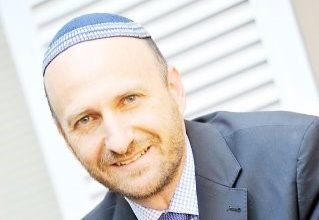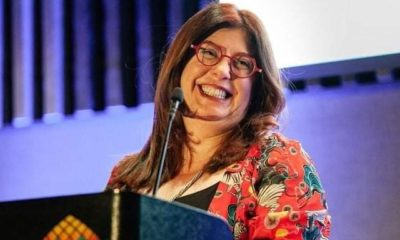
Voices

Second waves and second chances
The closing weeks of 2020 brought with them the long-anticipated onset of a second wave of COVID-19 infections in South Africa. Over the December period, the South African Jewish Board of Deputies (SAJBD) continued to co-ordinate meetings between the communal leadership and medical experts to assess the situation and plan and advise the community accordingly.
We have since participated in several national initiatives aimed at co-ordinating the efforts of civil society and faith communities in responding to the serious challenges of the day. Last week, SAJBD National Director Wendy Kahn participated in an African National Congress civil society engagement with President Cyril Ramaphosa, Health Minister Dr Zweli Mkhize, and other cabinet members titled “COVID-19 response and vaccines: the role of progressive civil society”. On Sunday, together with Chief Rabbi Dr Warren Goldstein, Kahn, and SAJBD National President Mary Kluk, I attended a meeting with Ramaphosa to discuss how the religious leadership can assist government, particularly in terms of the COVID-19 vaccine roll-out.
It hardly needs to be emphasised that all members of our community need to continue to do their part in minimising risk to themselves and anyone they come into contact with. Once again, I urge people to make full use of the guidelines and regular updates by Professor Barry Schoub, Dr Richard Friedland, and other medical experts on the SAJBD Facebook page and website to ascertain how best to conduct themselves in terms of vigilance and safety practices.
Restorative justice
Last month, we were able to resolve a long-standing hate-speech case between ourselves and former student leader Mcebo Dlamini for remarks he made at the University of the Witwatersrand, on PowerFM, and social media in 2015. Successful mediation was facilitated by the SA Human Rights Commission at the Johannesburg Holocaust & Genocide Centre. We are satisfied with the outcome of this matter. As SAJBD National Vice-President Zev Krengel put it, Dlamini’s recognition that the statements were antisemitic, hurtful, and offensive, together with his genuine apology, enables us to heal from the hurt he caused.
It should never be forgotten that South Africa’s transition from an authoritarian, bitterly divided, and conflict-ridden country to the robust multiracial democracy we have today was accomplished because South Africans, without forgetting the injustices of the past, were prepared to work together in building a better future. Expressing regret for one’s previous conduct, sincerely apologising for it, and undertaking to mend one’s ways going forward has thus assumed a great deal of importance in our society, and this is particularly true when it comes to racist behaviour. Once said, offensive words cannot be unsaid, but a heartfelt apology goes a long way towards removing their sting, and makes reconciliation possible.
Our Gauteng Council chairperson, Professor Karen Milner, stressed the importance of taking a restorative approach to justice wherever possible whereby the offender acknowledges what he or she has done wrong and expresses genuine remorse. Dlamini met these criteria, and was a successful example of what’s possible with this approach.
- Listen to Charisse Zeifert on Jewish Board Talk, 101.9 ChaiFM, every Friday from 12:00 to 13:00.








